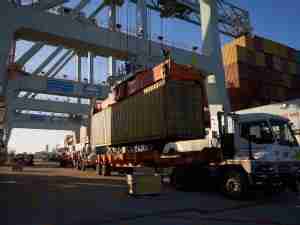Alexandria, Va. -- NATSO, the national association representing America’s truckstops and travel plazas, said today that the association will actively oppose key aspects of the Trump Administration’s new infrastructure proposal. Specifically, NATSO is concerned about provisions designed to increase interstate tolling and commercialized rest areas.
“Interstate tolls cost the government significantly more to administer and enforce than the existing motor fuels tax. Why would anyone fail to support an increase in the fuel tax and, at the same time, work to create another type of tax (such as toll roads) that costs more to collect than the fuel tax?” said NATSO President and CEO Lisa Mullings.
Not only do toll roads cost more than the fuel tax for the government to administer, interstate tolls divert traffic to secondary roads. This diversion not only damages these roads, it increases accident rates.
NATSO also strongly disagrees with the White House proposal to commercialize rest areas. Rest areas built after 1960 can only sell vending machine items. Rest areas before this date can sell food and fuel, and as a result have stifled business growth at the exits; in counties with commercial rest areas, there are 56 percent fewer restaurants, convenience stores and truckstops than other counties.
“We urge the President to reverse his support for rest area commercialization. Commercialization allows the government to hand-pick one company to operate exclusively at the state rest areas; this company behaves as a monopoly simply by virtue of its location on the highway shoulder or median,” Mullings continued.
Nearly 97,000 gas stations, truck service businesses and restaurants operate within a quarter mile of the Interstate Highway System, employing more than 2 million Americans. These businesses are the economic backbone of off-highway communities, providing jobs and supporting the local tax base in the majority of small towns across America, contributing billions in state and local taxes.
Furthermore, as truckstops and other businesses currently located at the exit interchanges fail to thrive, they would no longer be able to invest in truck parking capacity, undercutting a key priority of the Department of Transportation. A new report, titled Rest Area Commercialization and Truck Parking Capacity 2018, issued last week by NATSO finds 69 percent more truck parking spaces per mile along interstate highways where the private sector caters to the needs of the traveling public free from government competition at commercial rest areas.
While Mullings cautioned lawmakers to avoid actions that would close businesses and put people out of work, she also emphasized that the association strongly supports increasing federal investment in infrastructure through a fuel tax increase.
Among wealthy countries, no one wastes more money sitting in traffic than Americans do. On average, a motorist in the U.S. spends an extra $1,200 because of congestion, and this doesn’t even take into account the hundreds of dollars in car repairs caused by potholes and other poor road conditions or car accidents due to dangerous roads.

_-_28de80_-_9b2f972cdce64d5f7c8d952d74a16521db70a589_yes.jpg)






